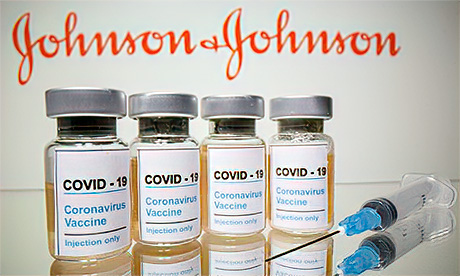“Pastorally dangerous” and “unhelpful” is how South African ethicist Anthony Egan SJ is labelling the Archdiocese of New Orleans claim the Johnson & Johnson Covid Vaccine is “morally compromised”.
He made the claims in America Magazine.
Egan’s irritation is that just one day before the US Food and Drug Administration granted emergency authorisation to a Johnson & Johnson vaccine, the Archdiocese of New Orleans published an unsigned statement on its website saying the vaccine was “morally compromised”.
The archdiocese is recommending Catholics be leery of the new vaccine, pointing to the manufacturer’s use of fetal cell lines with distant connections abortions.
Given a choice, the Archdiocese is asking Catholics to avoid using the Johnson & Johnson vaccine saying it was developed, tested and produced with abortion derived cell lines.
Egan notes that in South Africa, which has been hard hit by a more aggressive variant, the Johnson & Johnson vaccine is the only available option.
Egan says that in these times when people are anxious the archdiocese’s statement is confusing people and it is pastorally unhelpful.
“I think it’s pastorally dangerous because people are dealing with all kinds of crises—people are faced with unemployment, people are faced with disease, people are faced with death—and to make this kind of statement just adds to the general feeling of unease, a general feeling of crisis,” Egan said.
“I think it’s irresponsible to make a claim that you must absolutely not or absolutely must take the drug”, he said.
The view of the New Orleans diocese has been backed up by chairmen of the US Bishops Conference committees responsible for doctrine, Bishop Rhoades, and pro-life causes, Bishop Naumann.
Asked about the USCCB guidance, a spokesperson for Johnson & Johnson clarified:
“There is no fetus tissue in our Janssen COVID-19 vaccine.
“Our COVID-19 vaccine is an inactivated/non-infective adenovirus vector (similar to a cold virus), which codes for the coronavirus ‘spike’ (S) protein.
“We are able to manufacture hundreds of millions of doses using our engineered cell-line system that enables the rapid production of new viral vaccines to combat many of the most dangerous infectious diseases.”
The Johnson & Johnson vaccine is heralded for its practical advantages over Moderna and Pfizer-BioNTech’s vaccines.
Unlike its competitors, which require two doses, Johnson & Johnson’s vaccine only requires one. It can also be stored in a refrigerator, making it easier to distribute.
The Catholic Governor of Louisiana, John Bel Edwards joined the conversation, urging Louisianans to consider “the common good” in accepting vaccines.
Edwards said that in Lousiana, vaccine providers receive only one kind of vaccine at a time.
No reason for controversy
The controversy surrounds the use of what is referred to as HEK293 cells whose origins are reportedly traced back to an aborted fetus in the 1970’s.
However, scholars and ethicists note, the HEK293 cell lines are clones, not the original tissue.
In December the Vatican issued general guidelines regarding vaccines saying it is morally acceptable for Catholics to receive vaccines that used the research cell lines.
In January, Pope Francis and Emeritis Pope, Benedict XVI were inoculated and the Vatican has made Pfizer-BioNTech vaccine available for all citizens of the city-state.
“We have to keep in mind that more than 500,000 people are dead, and the urgency to establish widespread vaccination is extreme,” Lisa Fullam, who teaches moral theology at the Graduate Theological Union, told America.
“That doesn’t mean anything goes, but it does mean the situation we’re facing is really serious and will continue to cost more lives unless people step up to get vaccinated.”
“This kind of moral scare-mongering can cost lives, especially among people who might not have access to the vaccine otherwise,” she said.
Sources
Additional reading
News category: World.




